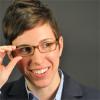 Recently, the debate over academic freedom at Catholic universities has been escalating. In July, the University of San Diego canceled Rosemary Radford Ruether’s appointment to the Msgr. John R. Portman Chair in Roman Catholic Theology. This action was motivated by pressure from a right-wing Catholic group that objected to Professor Ruether’s progressive ideology and theology.
Recently, the debate over academic freedom at Catholic universities has been escalating. In July, the University of San Diego canceled Rosemary Radford Ruether’s appointment to the Msgr. John R. Portman Chair in Roman Catholic Theology. This action was motivated by pressure from a right-wing Catholic group that objected to Professor Ruether’s progressive ideology and theology.
Many administrations at Catholic colleges and universities have similarly succumbed to the pressure of the Catholic right or the bishops.
However, not all administrations are so easily persuaded. Just last week, Fordham University Law School awarded Supreme Court Justice Stephen G. Breyer the 2008 Fordham-Stein Ethics Prize despite the strong objections of Cardinal Edward Egan. Cardinal Egan protested Justice Breyer’s pro-choice stance. The Cardinal Newman Society -- a conservative Catholic organization – joined the cardinal in objecting. In the end, the university decided to give the award to Justice Breyer.
There are plenty of similar instances that have occurred around the United States. These stories all share a common plot line. Objections are raised because of a person’s stance on a few issues within Catholic social teaching: abortion, same-sex marriage, stem-cell research, and the like.
As a recent graduate of The Catholic University of America -- a Catholic campus under the direct watch of the U.S. bishops’ conference -- I am quite familiar with this plot line. During my junior year, Stanley Tucci, actor, writer, film producer and director, was invited to speak on Italian film. When the administration discovered his support for the pro-choice movement, he was uninvited. However, during that same year, Vice President Dick Cheney and Sen. Sam Brownback spoke on campus, despite their stances that conflict with Catholic social teaching on war, the death penalty, poverty and so on.
This sparked a huge debate on campus. Some students -- conservative, apathetic or resigned students -- agreed with the administration’s ban on certain speakers. Many other students and professors protested the administration in a large movement for free speech that took fire on campus.
Even within this movement there was great debate. Some students thought the administration needed to be consistent -- if they were going to prohibit pro-choice speakers, then they also needed to prohibit pro-war and pro-death penalty speakers. At the time, I was in this camp. Other students thought we needed free speech on campus at all costs. They thought that this was the purpose of an academic setting -- to be exposed to all sides of a debate, not to be sheltered or protected.
It has been more than two years since I graduated, and -- after reflecting on my experience there -- I would now agree with the latter argument. Indeed, I chose to go to a Catholic university and all that comes along with that. And due to this decision, I was prohibited from analyzing different viewpoints, and I was not given the space to develop my own conscience.
Luckily, I had several fantastic professors who taught us to think critically, despite the administration’s apparent desire to have us not think at all. Nonetheless, with the overwhelming, one-sided tenor on campus, it was a great challenge to develop my own beliefs.
My hope is that other administrations at Catholic colleges and universities will follow Fordham’s lead and refuse to succumb to the pressures of the bishops and the Catholic right. Only then will students be able to freely think, be, create, form and grow.
(Kate Childs Graham writes for ReligionDispatches.org and YoungAdultCatholics-Blog.com. She also serves on the Women’s Ordination Conference board of directors and the Call to Action Next Generation Leadership Team. )




